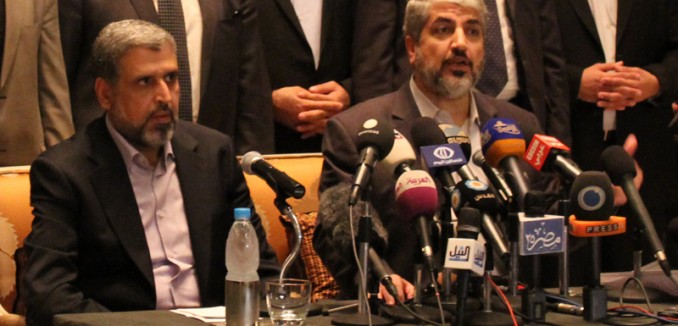From The Wall Street Journal, 18 Dec 2014, by Joel H Golovensky, lawyer and founding president of the Institute for Zionist Strategies in Jerusalem:
...Opponents [of a proposed law to designate Israel the “Nation-State of the Jewish People”] denounce it as anti-democratic, saying it will turn non-Jews into second-class citizens. That criticism is based on a misunderstanding of the bill and of the nature of democratic nation-states.
I was one of the bill’s originators. All of us are passionately committed to liberal democracy of the type that Israel has worked to build since its birth in 1948. The proposed law does not have anything to do with religious practices. Not one of us favours theocracy, and none would want to live in a country that lacked full democratic rights for everyone, including freedom of religion....Opponents [of a proposed law to designate Israel the “Nation-State of the Jewish People”] denounce it as anti-democratic, saying it will turn non-Jews into second-class citizens. That criticism is based on a misunderstanding of the bill and of the nature of democratic nation-states.
The proposed law would preserve the current basic laws guaranteeing democratic and civil rights. But in line with the thinking of David Ben-Gurion and Israel’s other founders, it would also reassert that there is nothing inherently inconsistent in the state protecting its generally Jewish character and all its citizens’ individual rights.
This notion is under assault from several directions. For decades, progressive activist judges have been increasingly calling into question the fundamental principle that Israel should be a Jewish state as well as a democratic state. Such politically activist judges often legislate from the bench in ways their critics (I among them) consider to be anti-democratic. For instance, Israeli law has for many years prohibited political parties from trying to destroy the Jewish or the democratic character of the state, yet some judges have chosen not to disqualify parties — such as the Balad Party — that aim to destroy Israel’s Jewish character by eliminating all Jewish characteristics of the nation-state and making it ethnically neutral.
Israeli Supreme Court president Aharon Barak made what he called a “constitutional revolution” in the early 1990s. An important consequence of that was interpreting civil liberties as inconsistent with Israeli government measures to give specific protection to Jewish culture, history and collective peoplehood.
The court has opposed classic Zionist land-use policies — such as the right to build Jewish settlements alongside Arab ones in the upper Galilee and Negev — going back to the founders of the Zionist movement. The court has also weakened the status of Hebrew, the national language of renewal which from the beginning has driven the Zionist enterprise. Justice Barak refers to protecting Israel’s Jewish character as a matter of mere “interest”, not on the level of civil “rights”.
Anti-Zionists and so-called post-Zionists have also campaigned to transform Israel. They argue it should cease to be the Jewish state and become an ethnically neutral country along the lines of the US or New Zealand. They argue that there’s something inherently non-democratic in Zionism. They are challenging not just Zionism, but the very idea of national self-determination.
Most democracies either have state religions (Britain, Denmark), put religious symbols on their flags (Norway, Switzerland), have ethnically based immigration-law preferences (Ireland, Germany) or otherwise give special protection to a particular ethnic culture (the Baltic states). Most of the more than 60 democracies are built on the ethnic identity of a predominant group, which moulds the character of the state while affording minorities full civil and religious rights. In this regard the Jewish state of Israel is a typical democratic country.
Untypically, it has been fighting to survive all of its life. Since the Roman Empire expelled them from their homeland 2000 years ago, the Jews in exile preserved their religion and their identity as a people. The dream of Zionism was to return to the homeland and re-establish sovereignty in a Jewish-majority state that would have equal dignity with all nations. The League of Nations endorsed this idea in 1922 by unanimous vote.
While the Arabs would have states of their own throughout the Middle East, the Jews would have one state in part of their ancient homeland. Like many of the states created after World War I, the Jewish state in Palestine would have citizens who were not part of the majority group and their civil and religious rights were to be protected within the Jewish state.
The Zionist dream was realised in 1948 with the creation of Israel. Jews exist across the globe, but Jewish national history marches forward only in the Jewish state.
The proposed bill codifying Israel as the nation-state of the Jewish people grows out of a long and complex history in which the Jewish people and all of Israel’s citizens are thinking through their communal identities — as Jews, Arabs, Palestinians, Christians, Muslims and Israelis. Reasonable people can and do differ about the bill. But its essence is simply to reaffirm the principle of national self-determination — that Israel is a Jewish and democratic state.





